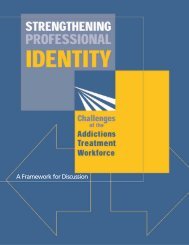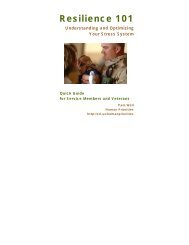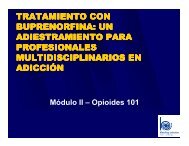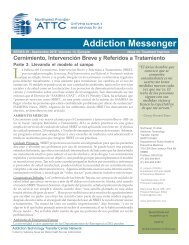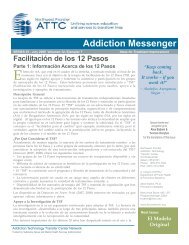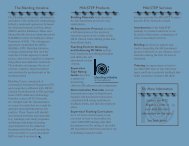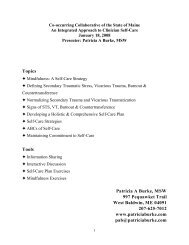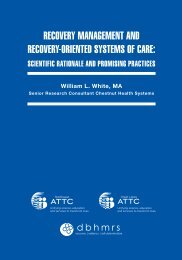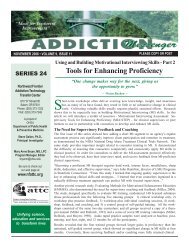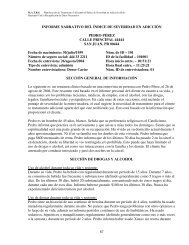alcohol and other drug problems among addiction professionals
alcohol and other drug problems among addiction professionals
alcohol and other drug problems among addiction professionals
You also want an ePaper? Increase the reach of your titles
YUMPU automatically turns print PDFs into web optimized ePapers that Google loves.
Project Spotlight: Best Practices in Clinical SupervisionVon Wrighten presented the results of his project, a set of guidelines for bestpractices in clinical supervision. He began his project with an informal survey,asking respondents to define clinical supervision (<strong>and</strong> determine which practicesdo or do not constitute clinical supervision). Other components of the projectincluded an examination of some of the ethical implications of clinical supervisionissues; identification of the impact of supervision; <strong>and</strong> recommendationsfor clinical supervisors, provided by a committee convened for this purpose.The survey yielded a number of interesting results. For example, manyrespondents were confused about the distinctions between clinical supervision<strong>and</strong> administrative supervision, <strong>and</strong> many reported people crossing theboundaries between the two. Although these two roles naturally overlap, theideal is to separate clinical from administrative supervision. Administrative dutiesoften take precious time away from clinical duties, <strong>and</strong> many staff membersfind it more difficult to speak openly of clinical <strong>and</strong> personal challenges withpeople who have the power to take disciplinary action.Managers surveyed said that that effective supervision was helping somepeople in recovery acquire a broader scope of skills beyond those acquired inrecovery. They reported high levels of improvement in all staff who were supervised,including improvement in clinical skills. They emphasized the importanceof the supervisory relationship. When supervisors had inadequate knowledgeof recovery, or of the components of good supervision, this had a negative impacton the supervisory relationship <strong>and</strong> the success of supervision.Only 20% of respondents said that people in recovery required specializedsupervision because of their recovery status.Recommendations submitted by the committee included the establishmentof regular times for supervision, the separation of <strong>and</strong> delineationbetween administrative <strong>and</strong> clinical supervision, the articulation of consistentgoals for supervision, the removal of barriers to supervision (with the shortageof funds as one of the largest barriers), <strong>and</strong> a clear underst<strong>and</strong>ing of clinicalneeds at all levels of the organization.n 41 n



